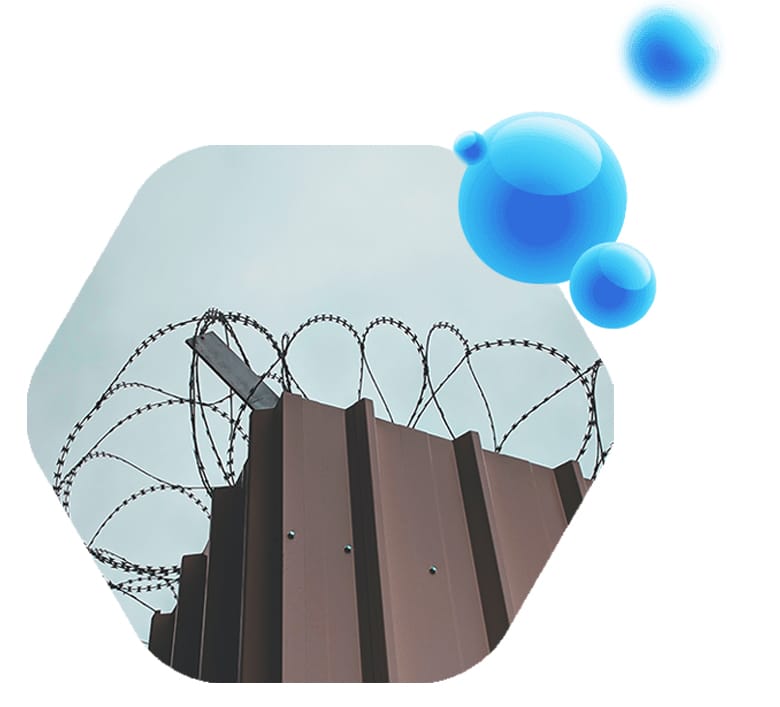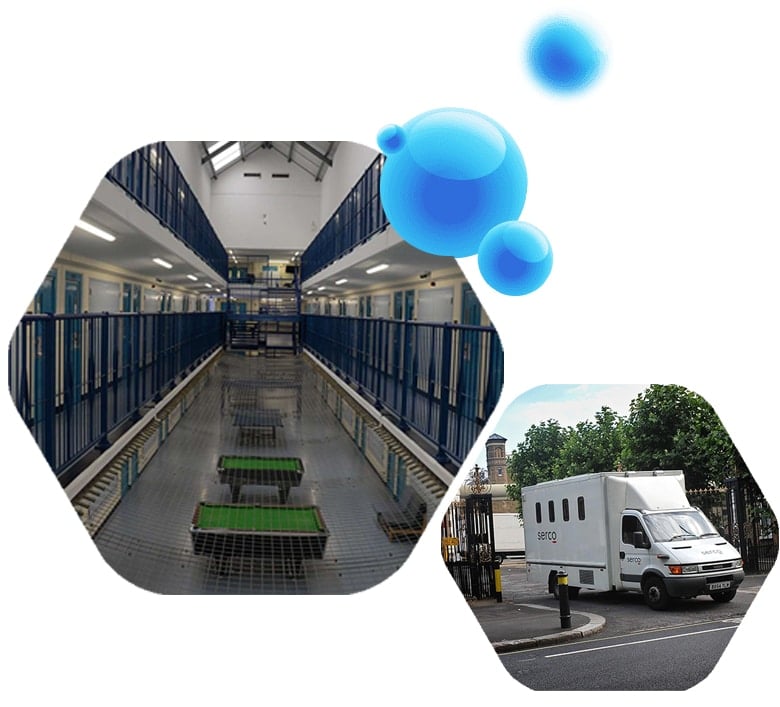Arrive at Prison - What happens when you arrive at prison?
It is extremely daunting when you arrive at prison for the first time, already just been chewed up and spat out by the court system, now your flung into a completely unknown territory and want to know what happens when you get to prison? I kept a prison journal and documented what it is like first hand to arrive at prison and what happens when you first arrive at the prison.
The door opened, no one said anything and the guard had disappeared. I gingerly walked out, there was no one around so I walked towards the building. There was a prison officer there who said nothing apart from point sharply for me to go through the door.
After stepping off the prison van and walking inside the prison, there was a counter like you’d find at a post office. so I approached it which of course was the wrong thing to do but yet they expected me to know the process like id been here before. “In there with the others” barked the officer referring to the holding pen resembling a deportation centre. There wasn’t many English-speaking people in there and the only space I could see was at the back.
Prison offers, called out names one by one which was a task in itself as the foreign speakers tried to decipher if it was theirs been called out as the officers made no effort to try and get the pronunciation of the names right.
All people spoke about in the holding pen was how long did each other get as a sentence and what did they end up in prison for, this seemed to be the universal prison language.
Weirdly but gladly not one person asked me and they seemed to give me a wide birth. Id later find out from speaking to one of the guys who was in there with me, everyone thought I was an officer or solicitor sat in my white shirt, trousers and shoes. Everyone else seemed was wearing a tracksuit.
You may benefit from reading our PREPARE FOR PRISON guide


I was summoned over to the counter, why they couldn’t do this the first time round I don’t know. Fingerprints taken, which again seemed to annoy the officer as I took my finger off too early.
Next, I was told to stand back onto a black matt where the 2 painted footprints were on the floor. Again, I managed to get on his bad side as I was telepathically meant to know he wanted me to stare down a camera lens behind his head. I was dismissed promptly back to the pigpen.
I was called by a different officer this time. I got directed into another room. It was full of large black shoe boxes from floor to ceiling, there was a scanning machine like you’d’ find at an airport and a counter at the back. To the left, a weirdly placed shower curtain and my bag that I had not seen since court.
I was told due to the size of the bag and number of contents that they wouldn’t be able to process it today and id need to wait until tomorrow. “Behind the shower curtain fella” some fat short officer came in, “Shirt off”. This was the dreaded strip search. I knew what was coming. Trousers were next, followed by socks, then boxers. How degrading!
Now standing in my birthday suit, meat and two veg on parade and if that wasn’t bad enough, I was asked to do a slow spin. I was half expecting fingers up the bum but luckily that never happened. After id spun round like a slow cooked chicken, the officer joked that it was just his job and glad we got it over and done with and I can put my clothes back on, how kind.
I was just about to put my own back on when another pulled the curtain open and chucked in some grey rags and grabbed my clothes “put them on mate, that’s all we got”. It was a pair of oversized grey prison issue tracksuit bottoms and a large burgundy t-shirt wrapped inside. Id binned better condition clothes, They stunk of sweat and everything was as holey as a church. At least it semi-fit, I’d seen people walking around in the prison gear looking like they had a crop top on or a potato sack with how ill fitted their issued clothing was.
To top it off, he said there were no more prison issue shoes left, so here are your court shoes. What a numpty I looked with grey joggers, burgundy t-shirt and black court shoes on. If I’d had a red nose I could probably attend and charge to do children’s parties as bobo the prison clown. I thanked them for their time and as I walked out, I think pity took over an officer due to my kind gesture which was probably out the ordinary for them and one of them chased after me with a brand-new pair of Velcro shoes still in their cellophane. There is a god after all!
A few minutes later, yet another officer appeared to escort me upstairs and put into another packed holding room.
One by one, prisoners left and didn’t return until it was my turn. I was led into a makeshift doctors office with a nurse sat on the computer. She asked me to sit down and was going to ask me a series of questions. Every question orientated around either drugs, drink, mental health, substance abuse, self-harming or suicide.she then asked how I’m feeling now I’m in prison and was I expecting it. I’d read that they mentally assess you when you come into prison to see where you fit for categorization and also suicide watch.
Next, I was waved across the hall to a little office with an officer who had my photo that was taken downstairs. There was many of them printed on an A4 page which he could peel off like stickers to put on different folders and files that had my name on them. The officer then said “Go see the workers on the middle of the desk in the hallway and get your nonsmokers pack and bedding”. 2 prisoners were stood behind an island in the middle of the hallway. They dumped a clear bin bag which was full of the cheapest of cheap produce you could think of, all unbranded, long-life milk, chocolate, tea bags, sugar, some coffee sachets. Plonked alongside it was some dog bedding. It was a bobbly old orange blanket, something your nan would have knitted back in the war. A green sheet that had seen better days and riddled with pubes and a pillowcase that I’m sure had been used to mop the floor.
Gone are the days of memory foam, Egyptian cotton and duck feather duvets. Yet another guard, more stairs the other side of the hallway back down and through another set of doors.
I’m now on the prison wing. It was 8:30pm, no prisoners around which I was thankful for, but this was it, IM IN PRISON! Thats what happens when you arrive at prison in my own personal experience




